21st Sunday in Ordinary Time Year A
Sunday August 23, 2026
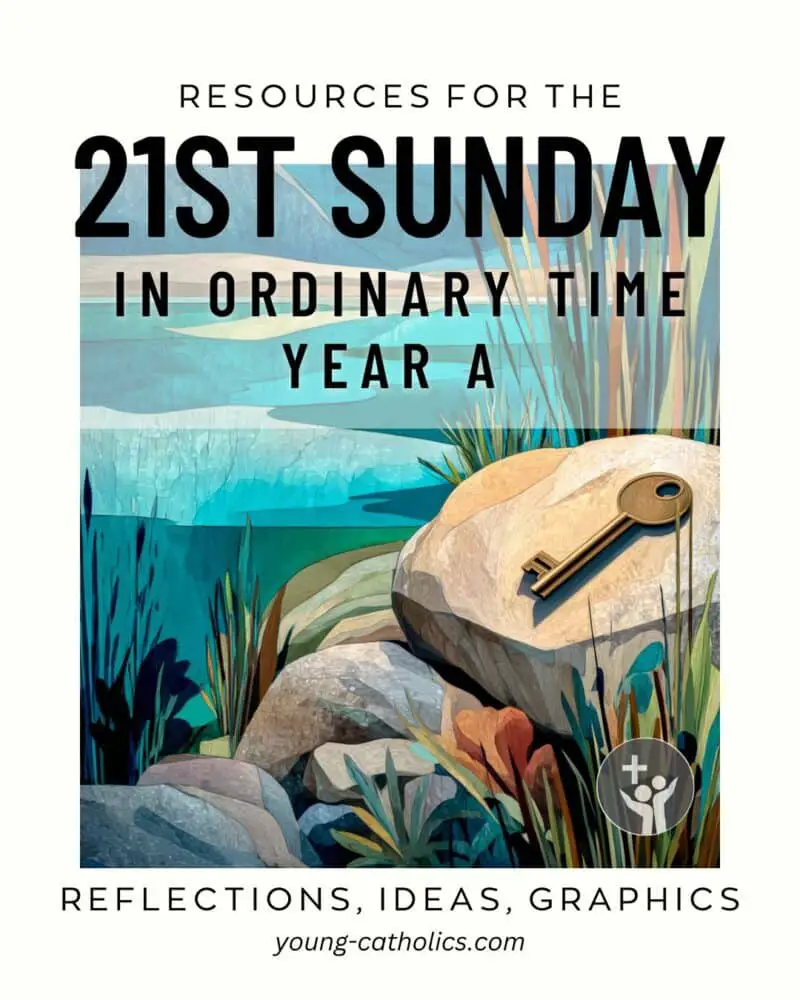
Built on a Rock of Faith
On the 21st Sunday in Ordinary Time Year A, we hear about strength, trust, and responsibility. God chooses people for His work and gives them what they need to carry it out. Each reading shows how God works through others to guide His people.
Isaiah tells of Shebna losing his role and Eliakim being raised up instead. God chooses Eliakim and gives him real authority. He becomes like a peg, steady and trusted, holding up his family and his people.
In the Gospel, Jesus gives Peter a new mission. Peter recognizes Jesus as the Son of God. Jesus responds by giving him the keys of the kingdom and calling him the rock on which the Church will stand. This reading helps us reflect on faith and leadership.
The 21st Sunday in Ordinary Time Year A calls us to think about who we trust and follow. God is always working, even when we don’t fully understand. He gives strength and purpose to those who say yes to Him.
Mass Readings for the 21st Sunday in Ordinary Time Year A
- First Reading – Isaiah 22:19-23: The LORD declares that He will remove Shebna from his position and replace him with Eliakim. Eliakim will have authority and be like a trusted peg, honored by his family.
- Responsorial Psalm – Psalm 138: I thank the LORD wholeheartedly, acknowledging that He hears me. I praise Him among angels and worship in His temple. His love is eternal, and He never abandons His creations.
- Second Reading – Romans 11:33-36: The vastness of God’s wisdom and knowledge is incomprehensible. No one can fully understand His mind or advise Him. Everything originates from and exists for Him. Glory to Him eternally.
- Gospel – Matthew 16:13-20: Jesus asks who people say He is. Peter proclaims Him as Christ, Son of God. Jesus blesses Peter, declaring him foundation of His church, giving him authority over heaven’s keys.
These are the readings for Year A in the lectionary cycle. For other years see the links below:
21st Sunday in Ordinary Time Year B
21st Sunday in Ordinary Time Year C
And so I say to you, you are Peter, and upon this rock I will build my church, and the gates of the netherworld shall not prevail against it.
Matthew 16:18
Themes for the 21st Sunday in Ordinary Time Year A
The readings for the 21st Sunday in Ordinary Time Year A show God’s authority and wisdom. They also highlight the role of Peter and the Church in carrying out God’s plan.
- God’s Authority Over Leaders: God removes Shebna and gives authority to Eliakim. This shows that God chooses leaders and can take away their power.
- Christ as the Foundation: Jesus tells Peter that He will build His Church on him. This shows that the Church is established by Christ and will last.
- Faith and Recognition of Jesus: Peter calls Jesus the Son of God. His faith allows him to see the truth about Jesus.
- Wisdom of God: Paul reminds us that God’s wisdom is beyond human understanding. No one can fully know God’s ways.
- Keys of the Kingdom: Jesus gives Peter the keys to heaven. This shows that the Church has authority to guide people to God.
- Glory Belongs to God: Everything comes from God and exists for Him. All honor should go to Him.
The 21st Sunday in Ordinary Time Year A reminds us that God is in control. He gives authority and wisdom to those who trust in Him.
Resources for the 21st Sunday in Ordinary Time Year A
Sunday August 23, 2026
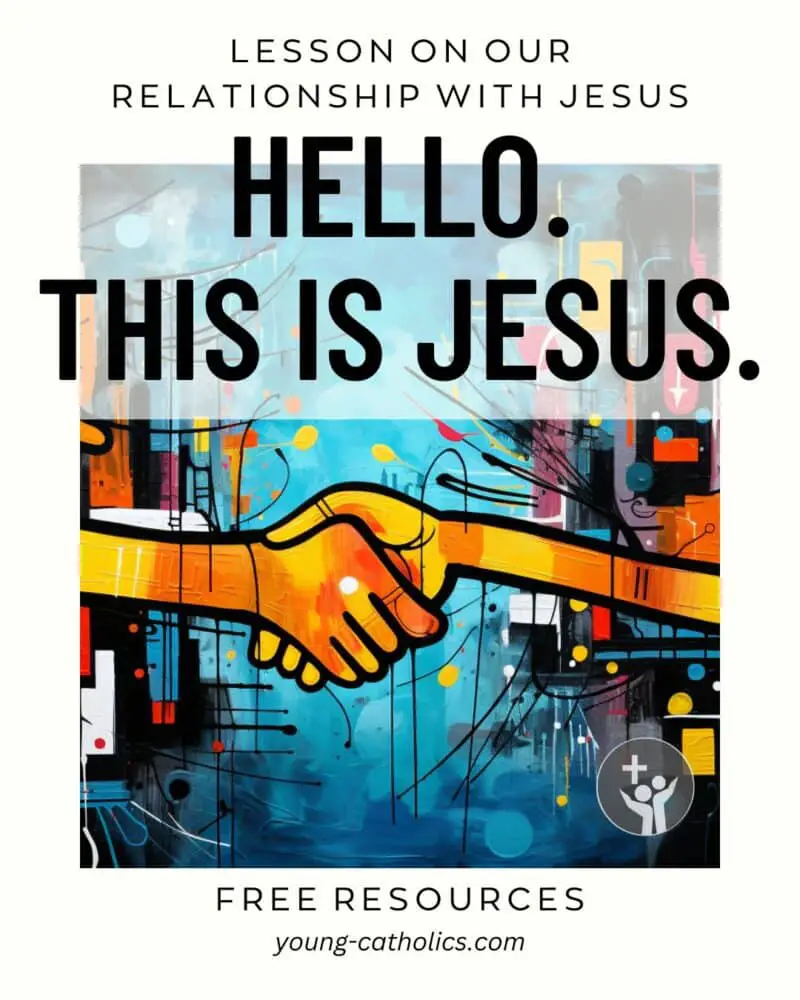
Hello. This Is Jesus – A Lesson Plan on Our Relationship with Jesus
On the 21st Sunday in Ordinary Time Year A, the gospel raises a vital question from Jesus: “But who do you say that I am?” This lesson plan, “Hello. This Is Jesus,” helps youth think about how they might answer that question.
The purpose is to guide young people to reflect on their personal relationship with Christ and practice speaking about their faith in simple and honest ways. Through activities, reflection, and prayer, they grow in confidence and understanding.
The lesson also benefits youth by making faith personal and real. It encourages them to see Jesus as a friend who is close and loving. By connecting the Gospel story of Peter’s confession with their own words, they learn how to live and share their faith in everyday life.

Keys to Leadership Activity
The gospel for the 21st Sunday in Ordinary Time Year A, Matthew 16:13-20, tells the moment when Jesus names Peter as the rock on which He will build His Church. Jesus gives Peter the keys to the kingdom, entrusting him with a special role of leadership. This passage is the foundation for the Keys to Leadership activity.
The activity helps participants see how Peter’s role connects to their own call to lead. By reflecting on Peter’s journey, they explore how faith, responsibility, and service shape true leadership in the Church and in daily life.
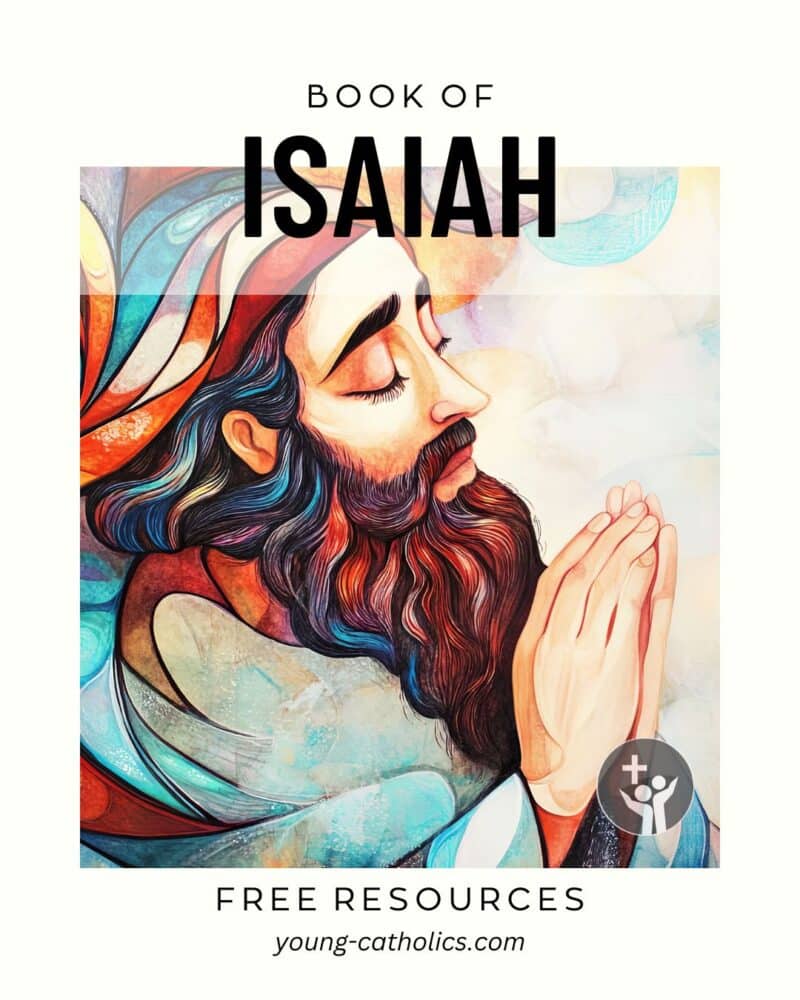
The Book of Isaiah: A New Stewardship
In Isaiah, the Lord declares judgment against Shebna, showing that leadership must serve God’s purpose, not personal gain. By raising Eliakim, God shows His care for His people, giving them a faithful steward. The 21st Sunday in Ordinary Time Year A highlights that true authority comes from God, not human ambition.
This passage fits Isaiah’s larger theme of God guiding His people through both judgment and promise. Authority is not about power but responsibility, rooted in faithfulness. Isaiah often reminds us that God alone establishes justice and order, using leaders who remain faithful to Him.
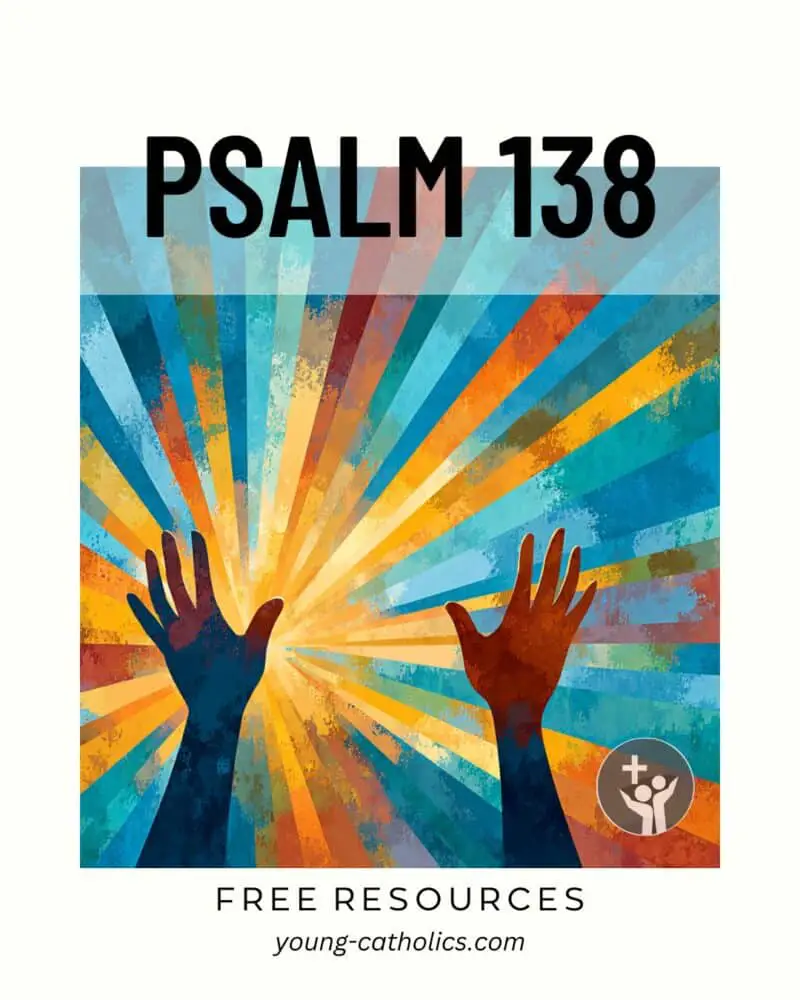
Psalm 138: Giving Thanks Always
Psalm 138 celebrates God’s constant presence and unfailing love. The psalmist offers thanks for God’s care and worships Him among the angels. On the 21st Sunday in Ordinary Time Year A, it reflects the confidence of God’s people that He listens and never abandons them.
The psalm belongs to the wider collection that praises God’s steadfast love and covenant loyalty. It echoes the themes of gratitude, trust, and worship, which run throughout the psalms. By remembering God’s faithfulness, the psalmist encourages believers to live with hope and praise.
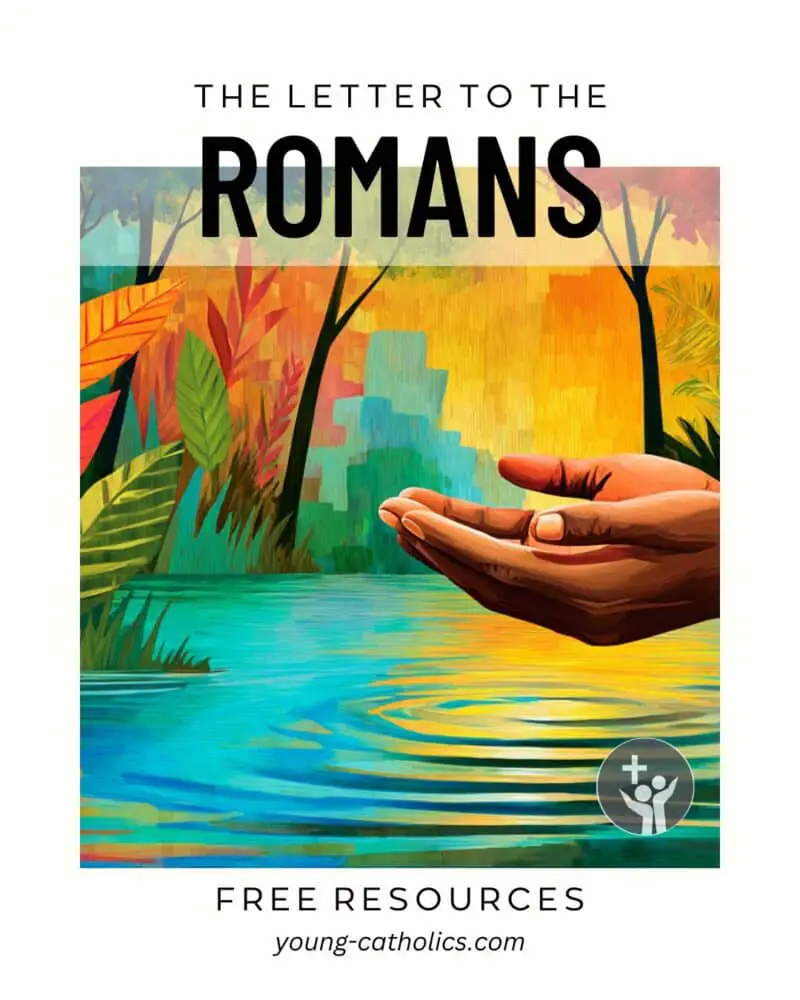
The Letter to the Romans: The Mystery of God’s Wisdom
In Romans, Paul marvels at God’s wisdom, which surpasses human understanding. On the 21st Sunday in Ordinary Time Year A, this passage reminds us that God’s plan of salvation is greater than human reason, flowing from His mercy and sovereignty.
Romans as a whole explains how God’s saving work extends to all through Christ. This hymn of praise in chapter 11 reflects Paul’s message that salvation is God’s gift, not human achievement. Everything begins and ends with Him, a theme woven through the entire letter.
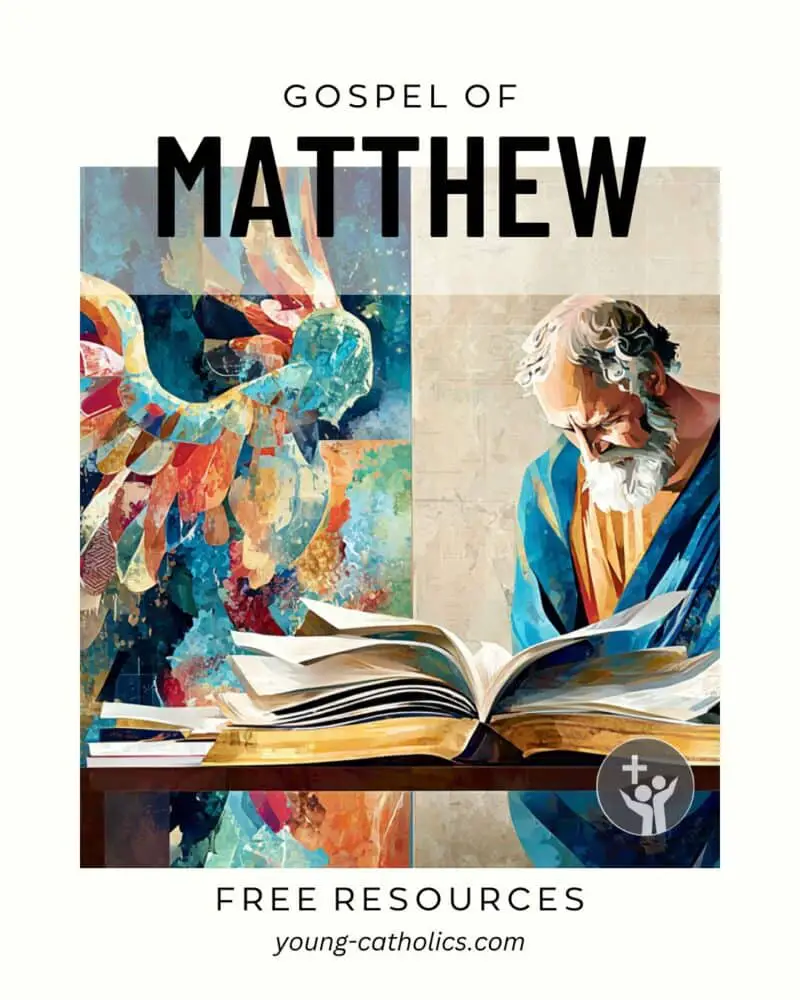
The Gospel of Matthew: The Rock of the Church
In Matthew, Jesus asks about His identity, and Peter boldly declares Him as the Christ, the Son of God. On the 21st Sunday in Ordinary Time Year A, this moment shows the recognition of Jesus’ true mission and the beginning of a new foundation for God’s people.
The Gospel of Matthew often highlights Jesus as the fulfillment of God’s promises and the teacher of a new community. Peter’s role here connects to the theme of the Church as the gathered people of God, built on faith in Christ.
Homilies and Commentaries for the 21st Sunday in Ordinary Time Year A
Sunday August 23, 2026
The Authority of the Papacy: A Haven of Trust
In this reflection by Jeff Cavins for the 21st Sunday in Ordinary Time Year A, the focus is on the authority of the papacy within the Church. Drawing from Isaiah 22 and Matthew 16, the reflection highlights the role of the prime minister in the Old Testament Kingdom of David and how this concept is fulfilled in the New Testament with Jesus establishing Peter as the rock upon which He builds His Church. The reflection underscores the keys of the kingdom being given to Peter, symbolizing authority to bind and loose, and emphasizes the unbroken chain of leadership through the papacy. The message encourages trust in the Church’s guidance and calls for prayers for the pope’s guidance and protection.
The Inscrutable God
In this homily by Bishop Robert Barron for the 21st Sunday in Ordinary Time Year A, the focus is on the mystery of God’s judgments and ways. Reflecting on Paul’s passage in Romans 11:33-36, Bishop Barron highlights the depth of God’s wisdom and knowledge that goes beyond human comprehension. He presents theological dilemmas, such as reconciling divine foreknowledge and human freedom, God’s universal desire for salvation and the reality of damnation, and the problem of innocent suffering. Embrace the mystery of God while continuing to seek understanding. It emphasizes the humility of surrendering to the inscrutable aspects of God’s ways while still pursuing knowledge and seeking the divine.
No One Can Experience Jesus for You
In this homily by Father Richard Rohr for the 21st Sunday in Ordinary Time Year A, the focus is on the personal encounter with Jesus and the call to live out the Good News. Father Rohr emphasizes the significance of the disciples’ personal experience and response to Jesus’ question, “Who do you say that I am?” Each individual must grapple with this question and truly encounter Jesus in their own way, not relying solely on external authorities. The same principles of the papacy apply to the entire community of believers. We must encounter Christ personally and to live out the Good News through love, rather than fear.
Oh, the Depths!
In this reflection for the 21st Sunday in Ordinary Time Year A, Scott Hahn explores the rich wisdom of God in today’s readings. The Gospel reveals the heavenly Father’s mystery of the kingdom to Peter, connecting the promises to David and the foundation of Jesus’ Church, which is like a spiritual temple built upon Peter as the rock. This insight shows the deep connections between God’s plan and the Church’s role in fulfilling it.
Did Jesus Envision a Pope?
In this article, Dr. Andrew Swafford delves into whether Jesus intended to establish a Church with a papal structure. He explores the connection between the New Testament and Old Testament, highlighting how Jesus’ words and actions fulfill Israel’s story and its symbols, including the Davidic office of authority. The reflection emphasizes that the papacy is rooted in the teachings and actions of Jesus, ensuring the unity and guidance of the Church throughout history.
Reflection for the 21st Sunday in Ordinary Time Year A
The 21st Sunday in Ordinary Time Year A reminds us of faith, leadership, and trust in God. The readings show how authority comes from God and must be used with humility. Peter’s confession of Jesus as the Son of God is a turning point. Jesus gives him the role of leading the Church. Paul reminds us that God’s wisdom is beyond our understanding. These themes invite us to reflect on our own faith and how we follow God’s plan.
Authority and Humility in Leadership
The 21st Sunday in Ordinary Time Year A shows that leadership is not about power alone. In the first reading, Shebna loses his position because of his pride, and Eliakim is chosen to take his place. God gives authority to those who use it wisely. Those who seek power for selfish reasons will not keep it for long.
Eliakim is described as a father to the people. He does not rule over them with pride but serves them with care. The key placed on his shoulder shows his responsibility. He has the power to open and close, but this power comes from God. It is not for his own gain.
Leadership in faith should follow this same model. It is not about control but about service. Whether in the Church, the workplace, or the family, true leaders put others first. They do not seek honor for themselves but honor God by guiding others well.
The 21st Sunday in Ordinary Time Year A reminds us that authority should be used with humility. God does not give positions of honor to boost pride. He gives them to those who will serve with love and wisdom. Like Eliakim, we are called to lead in a way that brings people closer to God.
Standing in Awe of God’s Wisdom
The 21st Sunday in Ordinary Time Year A reminds us that we cannot fully understand God. Paul describes how deep and vast God’s wisdom is. His ways are beyond human thought. No one can advise Him or claim to know all His plans.
Sometimes, we try to figure out everything on our own. We want answers to life’s big questions. We want to know why things happen the way they do. But Paul reminds us that we are not in control. Everything exists through God, and He is greater than our understanding.
This should not make us feel lost. Instead, it should give us peace. We do not have to know everything. We can trust that God is guiding all things. Our role is to believe, follow, and give Him glory.
The 21st Sunday in Ordinary Time Year A invites us to reflect on our place in God’s plan. We are not meant to control everything. We are meant to trust in God’s wisdom and live for His glory.
Who Do We Say Jesus Is?
The 21st Sunday in Ordinary Time Year A challenges us to think about who Jesus is in our lives. When Jesus asks His disciples what others say about Him, they list different answers. But when He asks them directly, Peter boldly declares that Jesus is the Son of God.
We may say we believe in Jesus, but do we really know Him? Do we see Him only as a helper in times of need? Do we treat Him like someone who owes us blessings in return for our prayers? Do we think of Him only when we need forgiveness?
Jesus is more than any single role we give Him. He is not just a teacher, a healer, or a Savior. He is the Son of God, the foundation of our faith. If we only see Him in one way, we miss the fullness of who He is.
The 21st Sunday in Ordinary Time Year A invites us to reflect on our personal relationship with Jesus. Do we truly know Him, or do we limit Him to what we expect? Like Peter, we are called to recognize Him fully and trust in Him completely.
Peter’s Faith and the Church
The 21st Sunday in Ordinary Time Year A highlights a key moment in the Gospel. Peter declares that Jesus is the Son of God, and Jesus blesses him. He tells Peter that he will be the rock on which the Church is built.
Peter’s faith is not perfect. He struggles and makes mistakes. But he trusts in Jesus and speaks with conviction. His faith is strong enough that Jesus gives him a special role in leading the Church.
Jesus gives Peter the keys to the kingdom of heaven. This means the Church has a responsibility to guide people in faith. It is not just about rules but about leading people to God. The Church’s foundation is not on human wisdom but on faith in Jesus.
The 21st Sunday in Ordinary Time Year A reminds us that faith is what holds the Church together. Like Peter, we may struggle, but Jesus calls us to stand firm. The Church continues because of faith in Christ, and we are invited to be part of that foundation.
The 21st Sunday in Ordinary Time Year A calls us to recognize Jesus for who He truly is. It also challenges us to trust in God’s wisdom and to lead with humility when given responsibility. Faith is the foundation of the Church, and we are all called to be part of that foundation. As we reflect on these readings, may we grow in faith and serve God with trust and love.
Prayer
Lord, you are the source of wisdom and strength. Help us to trust in your plan, even when we do not understand it. Teach us to lead with humility and to serve others with love. Strengthen our faith so that we may follow you fully. Guide us to always seek your truth. Amen.
Reflection Questions for the 21st Sunday in Ordinary Time Year A
- How do I use any authority or influence I have?
- Do I trust in God’s wisdom, even when life is uncertain?
- What does Jesus mean to me personally?
- How can I grow in my understanding of who Jesus is?
- What can I learn from Peter’s faith and leadership?
- Do I try to control my life instead of trusting in God?
- How do I recognize God’s guidance in my daily decisions?
- In what ways can I serve others with humility?
- How does my faith shape the way I see the Church?
- What steps can I take to strengthen my relationship with Jesus?
Social Media Graphics and Bulletin Artwork for the 21st Sunday in Ordinary Time Year A
If you would like an image to be made available as a specific product (card, poster, mug, etc.) or as an extra high resolution image for personal use just post a comment about what you want and we will create a link to our online store for you.
The Rock and the Key

This peaceful image, “The Rock and the Key,” is now available for download. It’s perfect for parish bulletins, newsletters, or digital reflections, especially for the 21st Sunday in Ordinary Time Year A. The image gently reminds us of Peter’s role as the rock and the keys to the kingdom.
Use it to draw attention to your message and invite quiet reflection. Download it today to add beauty and meaning to your print or online materials.
Paid subscribers may download a large copy this digital artwork without watermarks, suitable for use in bulletins, social media, newsletters, etc., free of charge by clicking here. You must be logged in as a paid subscriber to access the file.
Only current paid subscribers have the rights to use the artwork.

Music Suggestions for the 21st Sunday in Ordinary Time Year A
Sunday August 23, 2026
The music selections for the 21st Sunday in Ordinary Time Year A focus on faith, leadership, and trust in God. Some songs emphasize Jesus as the foundation of the Church, reflecting Peter’s role in the Gospel. Others celebrate God’s wisdom and strength, reminding us that His ways are greater than ours. There are also songs about following Christ, recognizing His love, and standing firm in faith. The mix of traditional hymns and contemporary worship songs offers a variety of ways to reflect on the themes of the readings. Whether through joyful praise or quiet reflection, these songs help deepen our connection to the message of the day.
- Be Thou My Vision by Mary E. Byrne & Randall Debruyn
- Bring Forth the Kingdom by Marty Haugen
- Christ Is Made the Sure Foundation
- Cornerstone by Hillsong Worship
- Eye Has Not Seen by Marty Haugen
- Holy God We Praise Thy Name by Robert E. Kreutz
- I Received the Living God
- Immortal, Invisible, God Only Wise by Walter C. Smith
- Jesus Christ You Are My Life by Rufino Zaragoza
- Join in the Dance by Dan Schutte
- Meekness and Majesty by Graham Kendrick
- Praise to the Lord the Almighty by Michael Card
- Restless by Audrey Assad, Matt Maher, and Sarah Kroger
- Sing a New Church by Delores Dufner OSB & Jeffrey Honoré, Randall DeBruyn
- Sometimes By Step by Rich Mullins
- The Church’s One Foundation by Samuel S. Wesley & Samuel J. Stone
- The Lord Is My Rock by Steve Angrisano, Sarah Hart & Curtis Stephan
- We Will Not Be Shaken by Bethel Music
- What a Beautiful Name by Hillsong Worship
- Your Love Never Fails by Newsboys
Music directors and musicians can use these selections to enhance the liturgy and help the congregation engage with the readings. Consider trying some of these songs or suggesting others that fit the themes of the 21st Sunday in Ordinary Time Year A. Share your own recommendations in the comments!
Questions and Answers for the 21st Sunday in Ordinary Time Year A
What is the main message of the first reading?
The first reading shows that God gives and takes away authority. Shebna is removed because of his pride, and Eliakim is chosen because he will lead with responsibility. This reminds us that leadership should be used to serve others, not for personal gain.
Why is Eliakim given a key?
The key is a symbol of authority. Eliakim is given control over the house of David, meaning he has the power to make decisions that affect the people. This teaches that leadership comes with responsibility and should be used wisely.
What does the second reading teach about God’s wisdom?
The second reading reminds us that God’s wisdom is beyond human understanding. People often try to figure out why things happen, but some things are only known to God. Trusting in God’s wisdom helps us find peace.
Why does Jesus ask the disciples who He is?
Jesus wants the disciples to think about their own belief. Many people have different opinions about Him, but He asks His followers to recognize Him personally. Faith is not just knowing about Jesus but knowing who He is in our lives.
What does Peter’s answer mean?
Peter recognizes that Jesus is the Son of God. This shows that faith is not based on human knowledge but on what God reveals. Peter’s answer is an example of true faith.
Why does Jesus give Peter a special role?
Jesus chooses Peter to be the foundation of the Church. Peter is not perfect, but his faith makes him strong. This shows that God works through those who trust in Him, even when they are not perfect.
What do the keys to the kingdom mean?
The keys represent authority and responsibility. Jesus gives Peter and the Church the role of guiding people in faith. This teaches that the Church has a special role in leading people to God.
How does the 21st Sunday in Ordinary Time Year A help us understand leadership?
The readings show that leadership should be used to serve others. Both Eliakim and Peter are chosen because of their faith and responsibility. Good leaders follow God’s plan, not their own desires.
What does the 21st Sunday in Ordinary Time Year A teach about faith?
Faith is not just about knowing facts. It is about trusting in God and recognizing Jesus as the Son of God. Peter’s confession reminds us that faith comes from a deep relationship with God.
How can I apply the message of the 21st Sunday in Ordinary Time Year A to my life?
You can trust in God’s wisdom, even when you do not understand everything. You can also use any leadership or influence you have to help others. Most importantly, you can grow in faith by recognizing who Jesus is in your own life.
Why is Peter’s role important for the Church?
Peter’s faith makes him the foundation of the Church. His leadership continues through the Church today. This shows that faith in Jesus is what keeps the Church strong.
How can I grow in my faith like Peter?
You can pray, read Scripture, and trust in God even when life is difficult. Faith is a journey, and like Peter, you will make mistakes. What matters is continuing to follow Jesus and believe in Him.
God Gives Authority and Wisdom
The 21st Sunday in Ordinary Time Year A reminds us that God is in control. In the first reading, God removes Shebna from power and gives authority to Eliakim. This shows that leadership comes from God, not from human strength.
In the gospel, Jesus asks His disciples who they think He is. Peter answers that Jesus is the Son of God. Jesus praises Peter’s faith and gives him a special role in the Church. He tells Peter that he is the rock on which the Church will be built.
The second reading reminds us that God’s wisdom is beyond human understanding. Everything comes from Him and exists for Him. The 21st Sunday in Ordinary Time Year A teaches that God chooses leaders and gives wisdom to those who trust in Him.
Your Turn
The 21st Sunday in Ordinary Time Year A invites us to reflect on faith and leadership. Peter recognized Jesus as the Son of God, and Jesus gave him responsibility in the Church. How do we recognize Jesus in our lives? How do we trust in God’s wisdom?
Take time to read the passages and think about their meaning. Share your thoughts in the comments. How do these readings connect to your own faith journey?


Leave a Reply